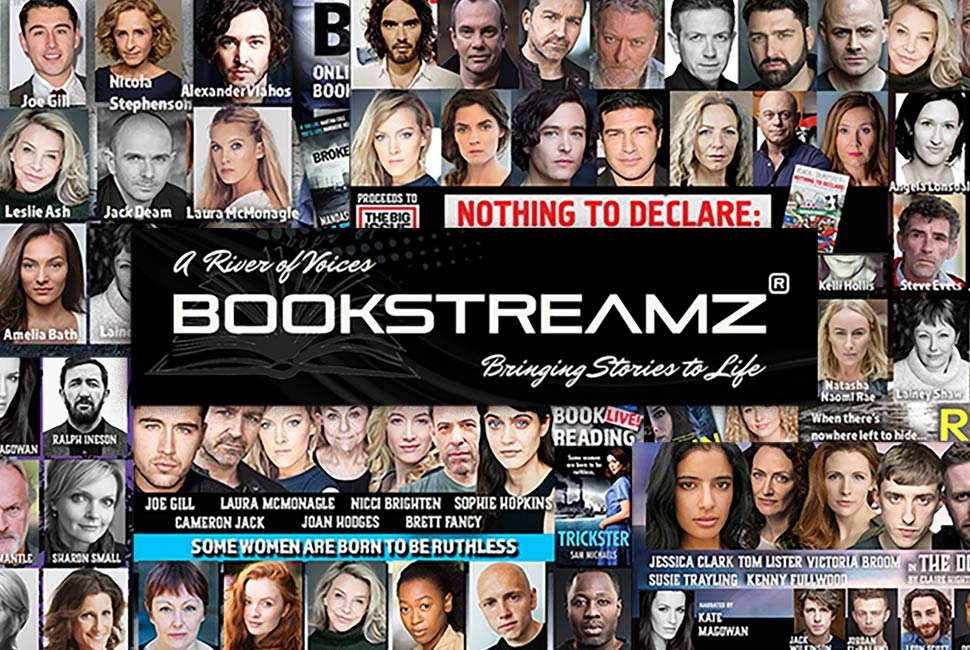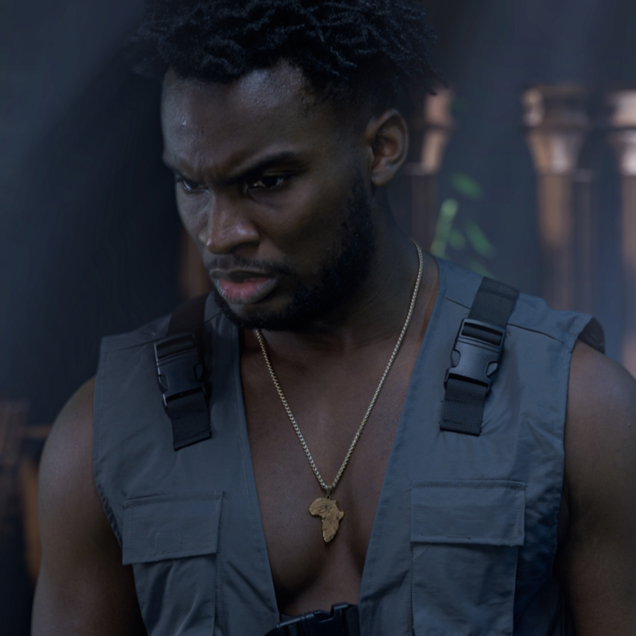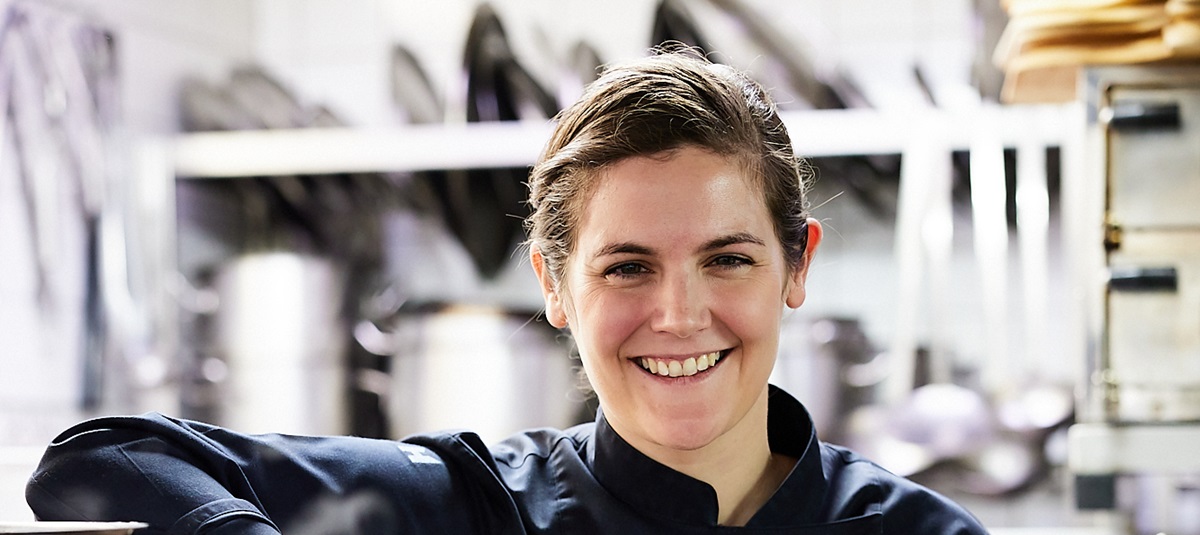Caroline de Wolfe is the owner of Felix de Wolfe, the longest established independent entertainment and literary agency in the United Kingdom. Her father, Felix de Wolfe started it in 1947 and never looked back. In 2004, after almost two decades “learning the job” Caroline took over and with her progressive approach and a team full of talent, she has kept the agency at the forefront of the industry.
Our Editor Julia Pasarón had the chance to speak to Caroline a few weeks ago to talk about the evolution of the industry in the last decades, the dangers of social media and why we need a storm of angels.
I-M: How did you learn the business?
C.dW: From the ground up. My father insisted that I do a typing course over the summer and I started in the agency as a receptionist. I must admit I was a bit taken aback as my focus was solely on becoming an agent, but my father explained that if I was ever to run the agency and understand the issues that employees would encounter I would only be able to support them fully if I’d done their job myself.
After a year, I started doing more of the general typing in the office and became my dad’s PA. Subsequently, after five years of learning about the business, he agreed that I should start going to drama schools with a view to taking on my first clients. It was a long road but my father was absolutely right. As the MD of the company it’s really important to be able to put yourself in other people’s shoes, and you can only do that if you’ve walked in them.
I-M: Over your career, which are the biggest changes you have seen in the industry?
C.dW: Without a doubt, technology. Right across the board. When I started, we had filing cabinets full of clients’ headshots. We had to go to the post office every day with a stack of mail. Every client suggestion we made for a job had to be typed, attached to the actor’s headshot and CV and then posted. Now it is all done by email. Actors can self-tape and then upload to our data- base so we can share with relevant parties; and during lockdown, a lot of auditions and meetings have happened over Zoom and Teams.
Actually, thanks to technology, it’s been possible to keep the flame of theatre from being extinguished altogether over the last year. Many theatre companies and producers have made their existing work available to watch online, including The National Theatre, RSC, Almeida, Royal Court, Royal Exchange Manchester and National Theatre of Scotland, while others have been rehearsing and streaming new productions online such as Leicester Curve’s production of Sunset Boulevard and Metcalfe Gordon’s production of Romeo & Juliet for which the cast filmed in a green screen studio and were then digitally placed on a stage in post production, so technology has also meant increased accessibility for everyone.

Furthermore, it’s meant that theatres who are fighting for survival have been in a position to stream productions online to raise much needed funds for their future, such as Queen’s Theatre Hornchurch, Hull Truck and Oldham Coliseum’s production of The Hired Man.
Social Media has also had a major influence on the industry, from the way in which people have direct access to industry folk and vice versa, to the importance placed on an artist’s social media following on these platforms when assessing how appealing they might be for a particular production. However, the industry itself hasn’t fundamentally changed. At its core it has always been and it will always be about storytelling. The difference is how you package it and deliver it to an audience.
I-M: What about accessibility to jobs for actors from ethnic minorities, disabled or LGBTQIA?
C.dW: The industry has improved but there’s no question in my mind that we’re still far from achieving equality, both in front of and behind the camera/stage. Awareness of the prevailing inequality has increased dramatically and action should follow suit. At the end of the day, we are an industry of storytellers and these stories should reflect what we see out there in the wider world.
The need for the imbalance to be addressed and redressed is now very apparent and among broadcasters there is a realisation about how imperative it is for audiences to see themselves in the stories they see and hear. From the point of view of our industry, I believe it’s vital for children watching television, film or theatre to see themselves reflected as it opens up a world of otherwise unimagined possibilities of careers they can do. In the same way, it’s vital in all industries that people know that there’s no glass ceiling and that anything is attainable.
I-M: Going back to social media, do you see it as friend or fiend?
C.dW: In my opinion it’s a bit of both and for us, it’s an industry tool. I always advise my clients to use it for work purposes and to think about what they’re posting. One of the down sides of it is that it offers people a cloak of invisibility behind which to hide, so they’re able to behave in a way that the majority of them would never dream of if they were face to face with you.
I really think that social media companies ought to require anyone who’s on their platforms to give their real name and have a real photo…
– Caroline de Wolfe.
There should be genuine details on there so that there’s complete transparency, responsibility and accountability in order to stamp out the appalling trolling which is all too often in evidence.
I-M: What about the over-sexualisation of children and women in media, particularly on social media. How do you feel about this? How does it affect your business?
C.dW: There is no doubt that our clients are under a lot of pressure, caused in a large part because there are not enough women in senior positions in the media and entertainment industries. For us as agents, we feel like our clients’ custodians so it’s incumbent on us to protect our clients and ensure they don’t feel unduly pressurised about their physical appearance.
Certainly the objectification and over-sexualisation of children and young women is something that we must all not only be aware of but actively reject and move away from as it undoubtedly has a profoundly negative effect on society as a whole. If that’s what people see in the media it validates them behaving like that, which makes equality much harder to attain and in my opinion, reality TV has massively contributed to this problem.
The issue is exacerbated by the social media platforms where you are validated by how many likes you get, mostly from strangers. These aren’t your friends or individuals you know and yet they have a tremendous power over people, particularly the young and vulnerable, with a potentially serious impact on their mental health.
Age is also still a problem. For actresses over 50 the availability of substantial roles significantly drops off; and this is also something that has to be recognised and addressed. If we can encourage more women in to the industry as directors, producers and writers the situation will continue to improve. We’re making inroads, but there’s still a long way to go.
I-M: The current pandemic has brought the arts and entertainment industries to their knees. How have you been supporting your clients?
C.dW: Covid has been an absolute disaster for the industry at large. The first lockdown was just so shocking that we didn’t know how to react at first. Overnight all the theatres were shut down, productions sus- pended or cancelled, our clients repatriated from all corners of the world where they were working… It was incredibly difficult to manage because we simply had no idea of what was going to happen and for how long.
Theatres have been closed for nearly a year now, with devastating consequences for everyone involved. That’s why initiatives like Bookstreamz have been a lifeline. Bookstreamz came out of a desire to continue to tell stories during lockdown. This new format is “Audible meets Netflix”. It’s a book performed by a narrator with a cast of actors who deliver the dialogue in character. Together they “perform” the book. It’s a hybrid which brings stories to life on screen so you can watch and listen, or just listen as you would with an audio book.
At the start of lockdown last year Elaine Sturgess started Bookstreamz as a way to raise money for the NHS…

At the start of lockdown last year Elaine Sturgess started Bookstreamz as a way to raise money for the NHS and The Big Issue Foundation, with well known and estab- lished actors working alongside new and emerging talent from TV and theatre: Ross Kemp, Russell Brand, Leslie Ash, Alexander Vlahos, Nicola Stephenson… and many faces from national TV. The response from the public was fantastic so the enterprise has continued and is going from strength to strength.
I also think it is great for students as it’s an authentic reading of a book rather than an adaptation, so schools can use it to help kids not just understand these stories but also at the moment, when they can’t take them on school trips to see theatre productions, they can still enjoy watching and listening to actors performing some of the books which are on their reading lists.
I’ve also been doing some drama school Q&A’s as the students are of course doing all of their classes online. In general the industry has been very creative and has found ways to keep some parts of the business going and provide some very much needed revenue, in spite of the theatre side of the industry being brutally hit. From workshops to streamed theatre productions, where the actors quarantine, get tested and then become each other’s bubble so they can rehearse and film productions for streaming as I mentioned earlier.
I-M: What does the road to recovery look like?
C.dW: The main challenge is going to be to get public confidence back so people return to the theatre and are comfortable sitting next to somebody they don’t know who isn’t in their bubble! Again, there are wonderful creative brains at work coming up with ways in which that can be safely achieved.
I-M: How could the Government assist?
C.dW: For starters they could do informative campaigns so people feel secure going back into theatres. They also need to support the theatre workers (from front of house to backstage staff), especially those who fell through the cracks of the Government assistance available during Covid. For example, all of the recent graduates and young professionals in the industry who are self-employed and didn’t have the required three years of accounts to be eligible for support.
The plight of actors and other theatre workers in the entertainment industry is a real one. Only a small percentage of performers able to earn enough to make it their full-time job, and with so many having slipped through the net regarding the sup- port packages they’ve been hit particularly hard. I certainly welcome the support that has been given to theatres and venues, however very little support has made its way directly to the performers themselves. The fact is that until the restrictions are eased, it’s almost impossible for many of the people who work backstage in theatres to do their job: wigs, make-up, dressers…
I certainly welcome the support that has been given to theatres and venues, however very little support has made its way directly to the performers themselves…
– Caroline de Wolfe.
I don’t know what the exact solutions are but we are going to need a significant amount of goodwill from all parties to emerge from this crisis and rebuild what’s been lost, a kind of perfect storm in which everybody comes together. And we need big injections of capital, angel investors – perhaps the Government themselves taking on that role so they have a stake in some of the productions, and subsidies to ensure job security in the sector. Our industry generates an enormous amount of revenue, and therefore taxes for the Treasury, so I genuinely believe it deserves some significant support to recover from this disastrous time.














Show Comments +